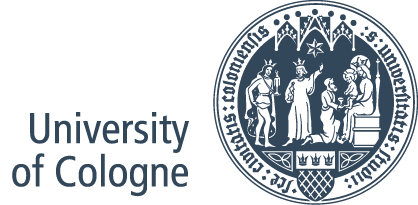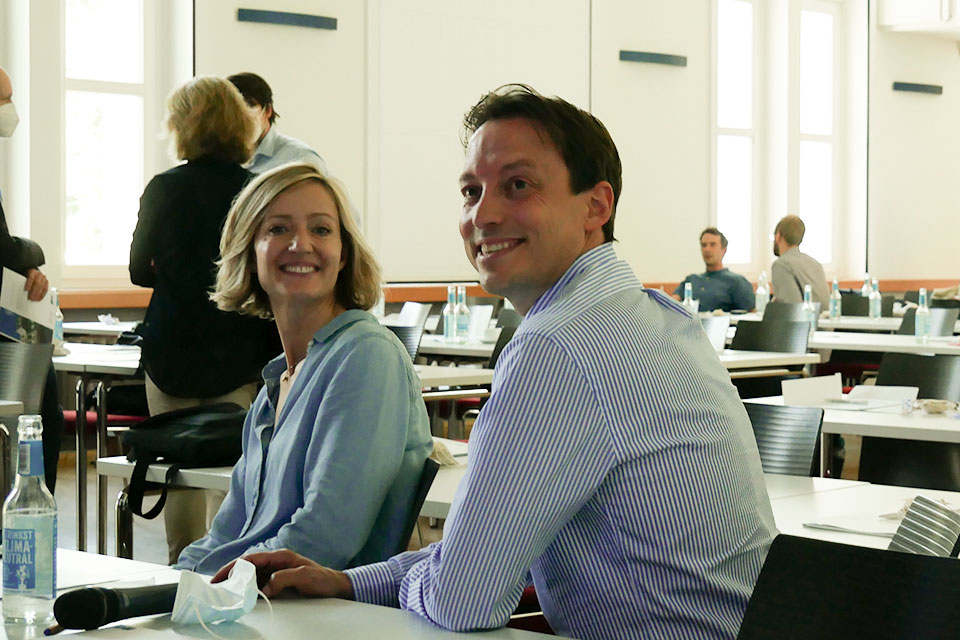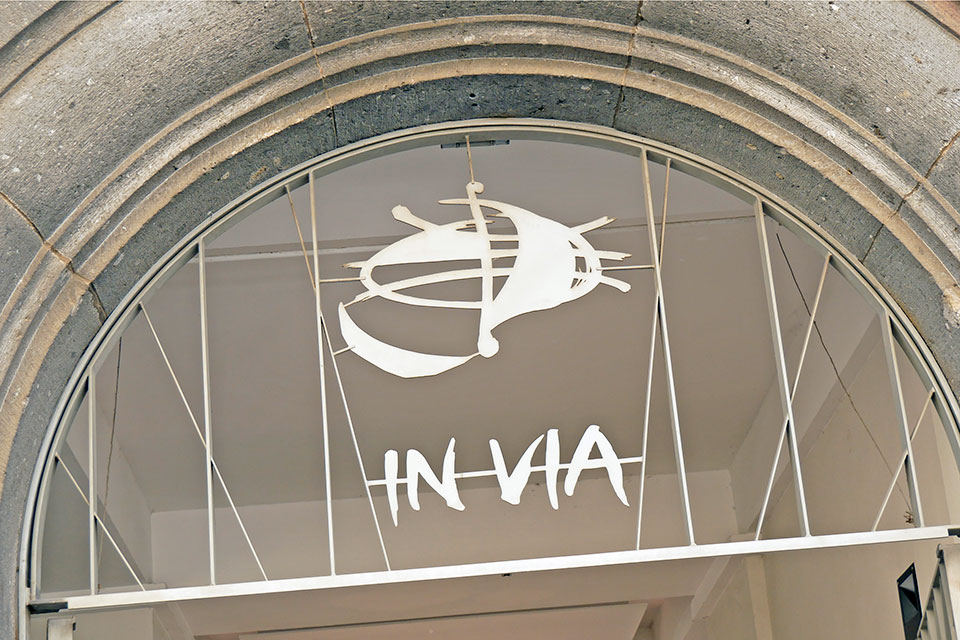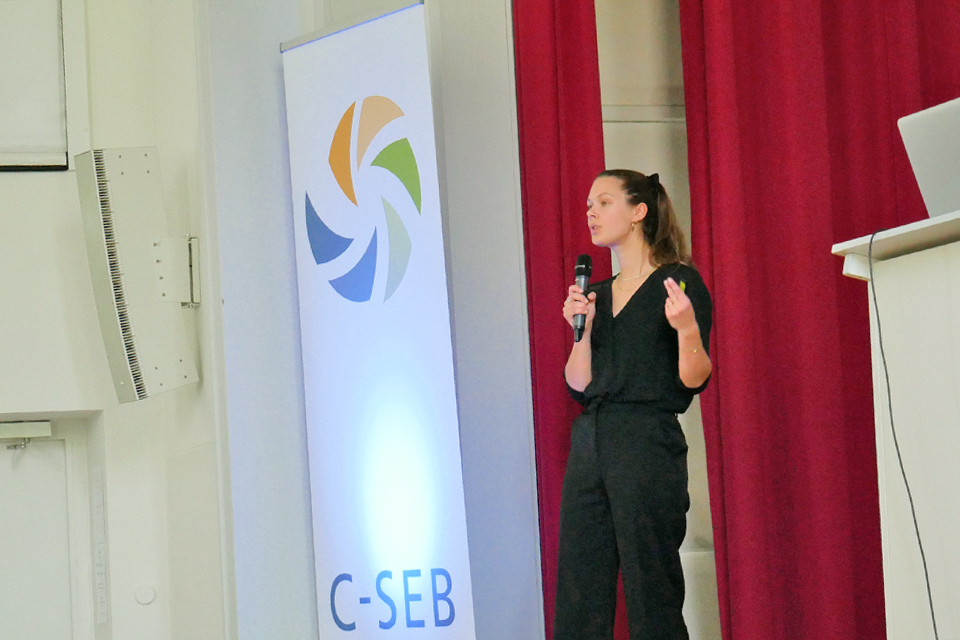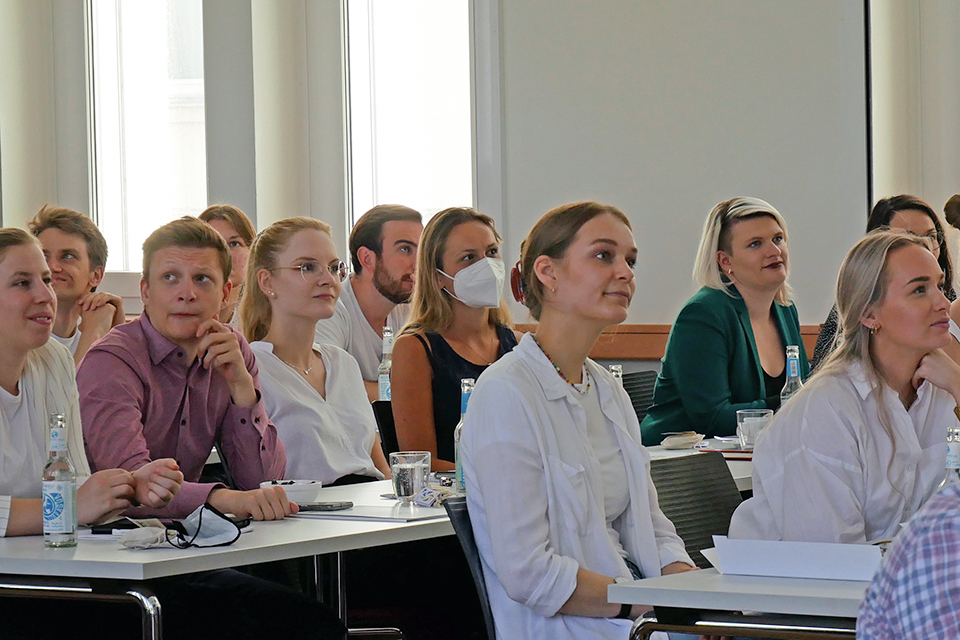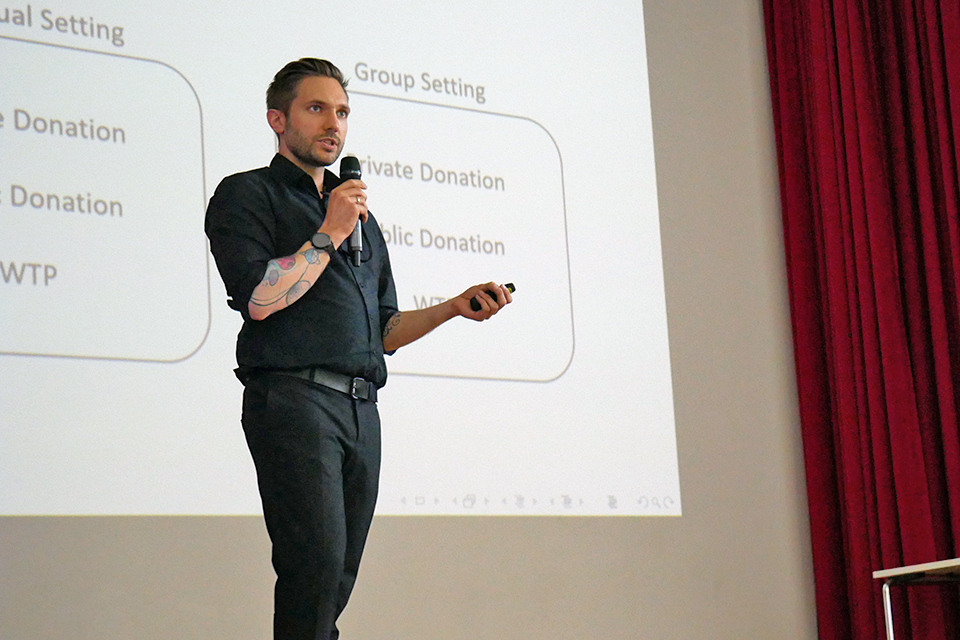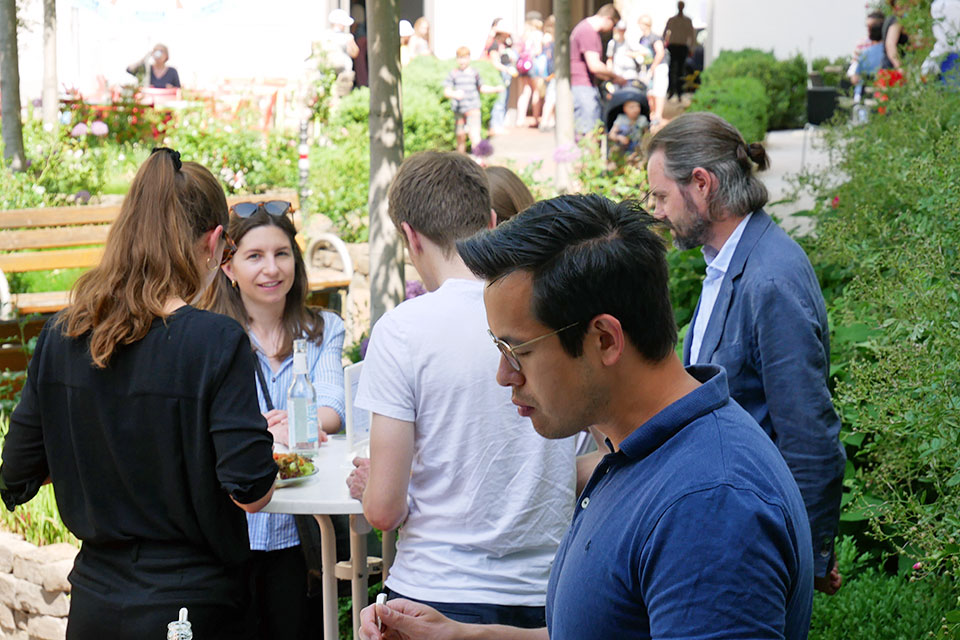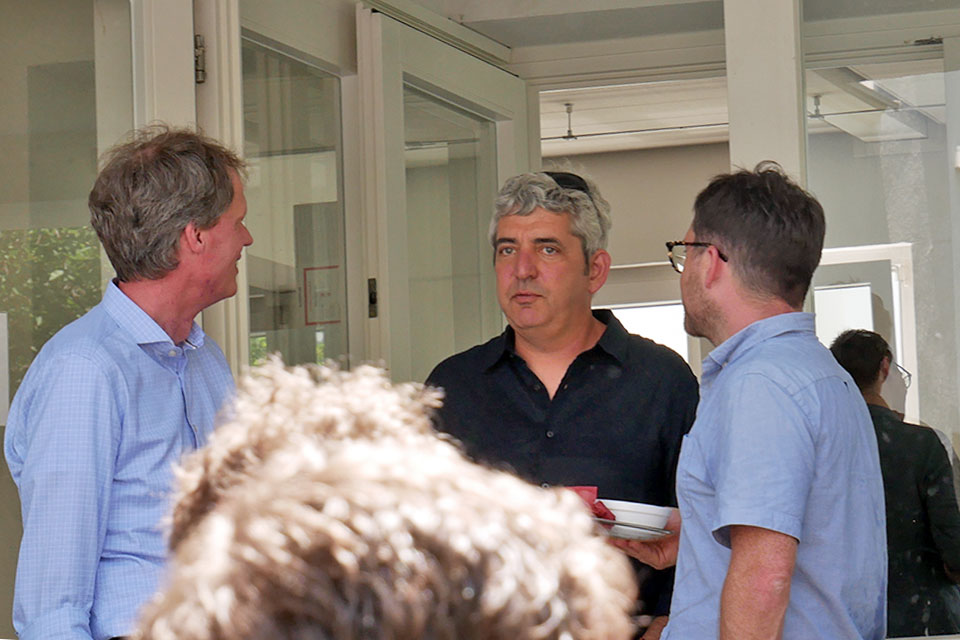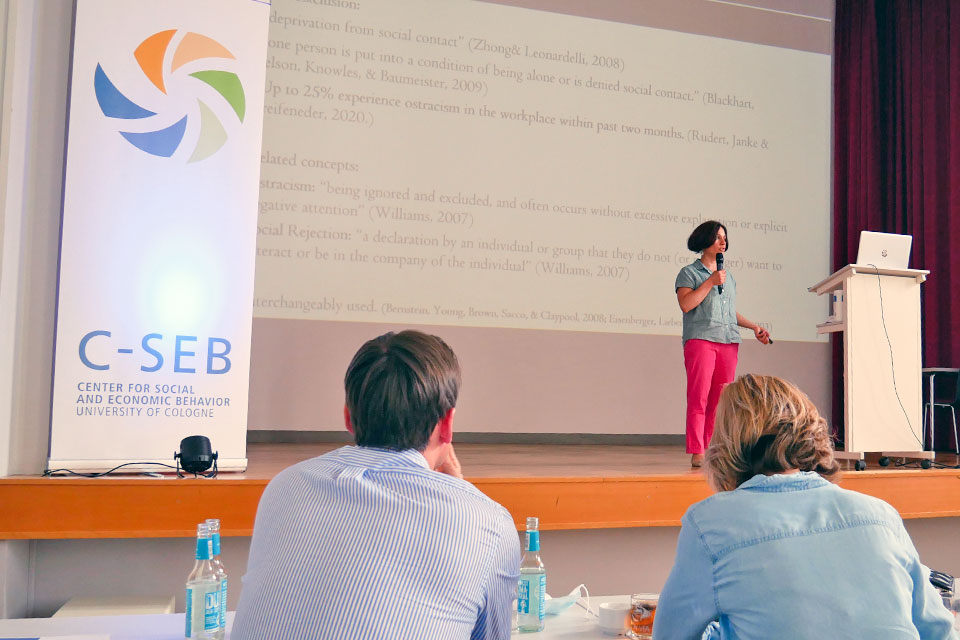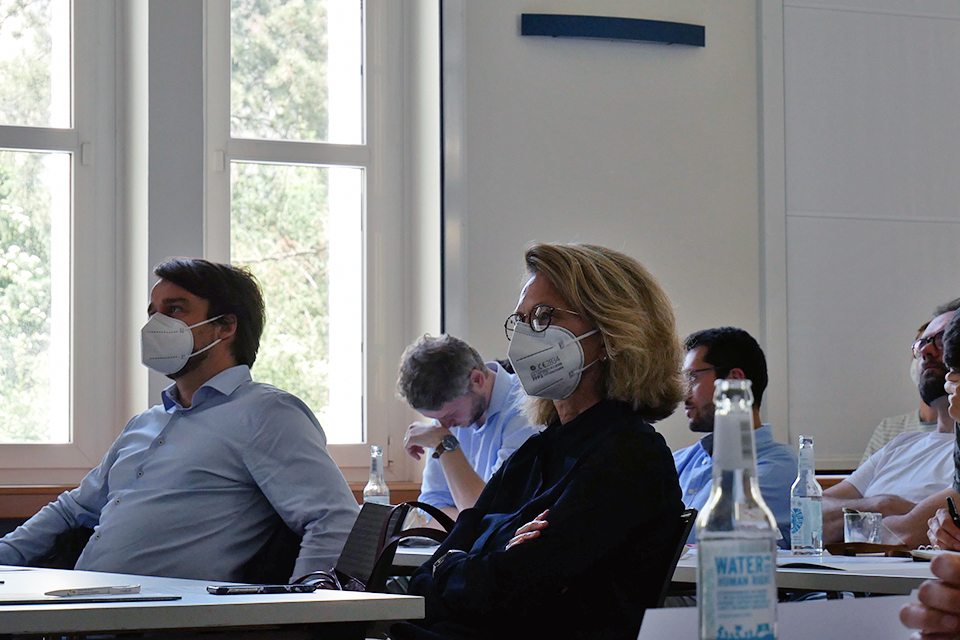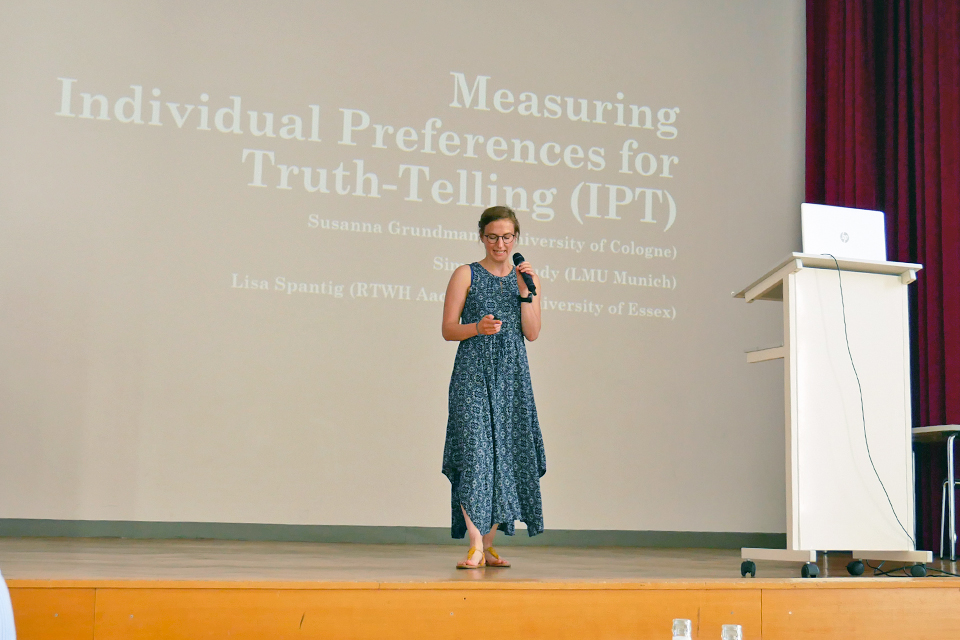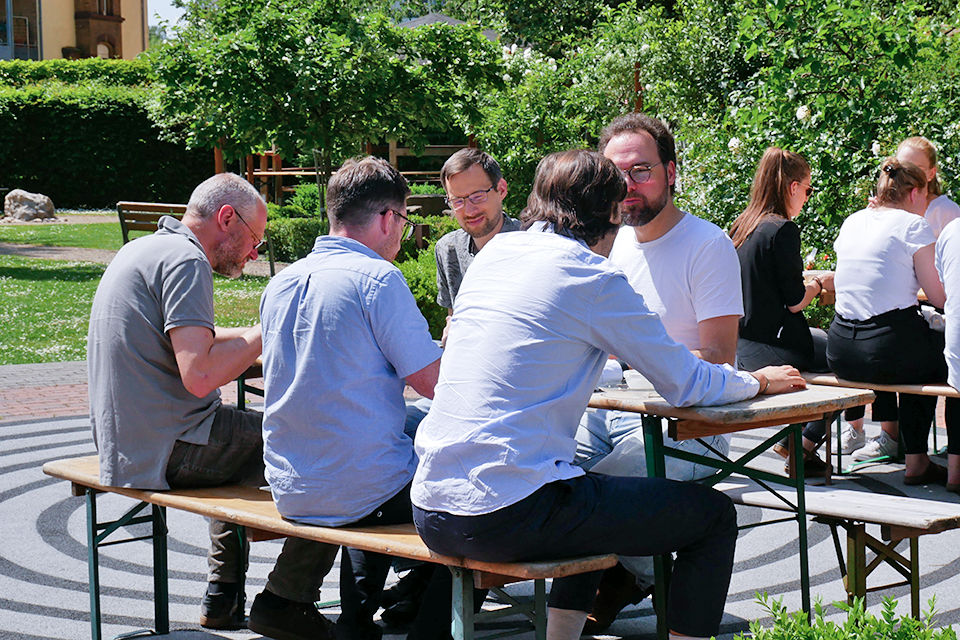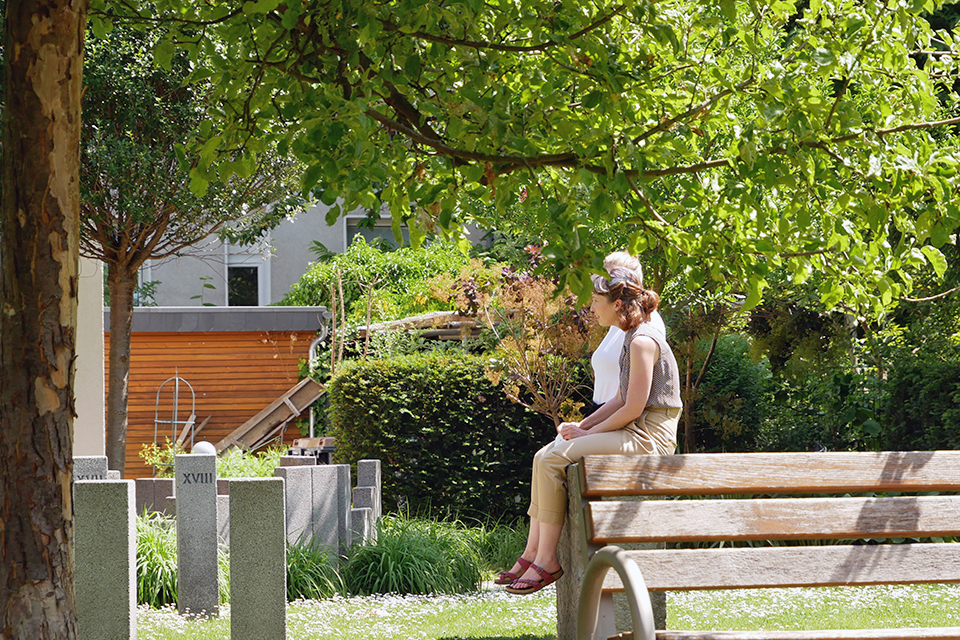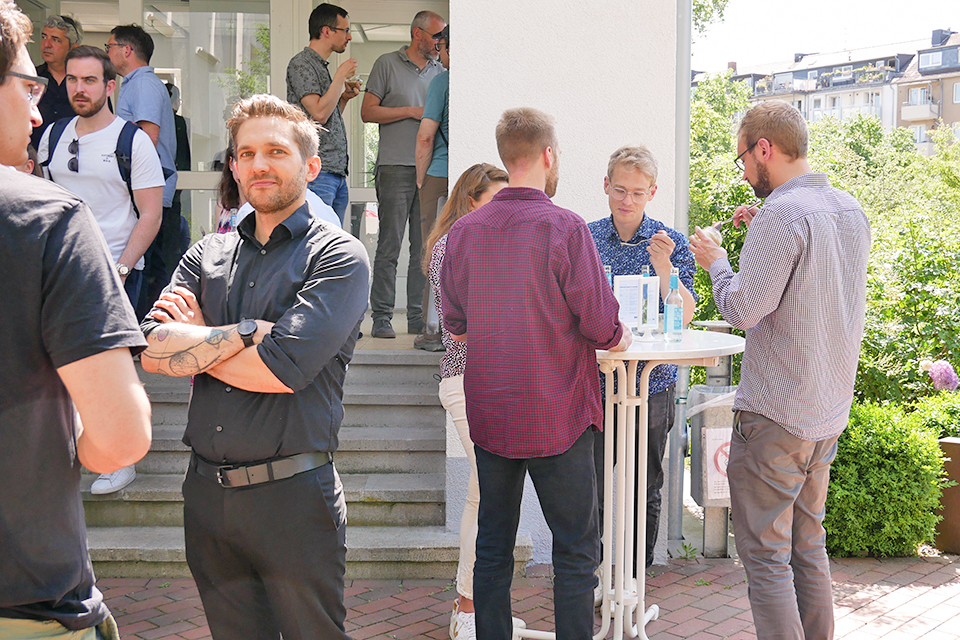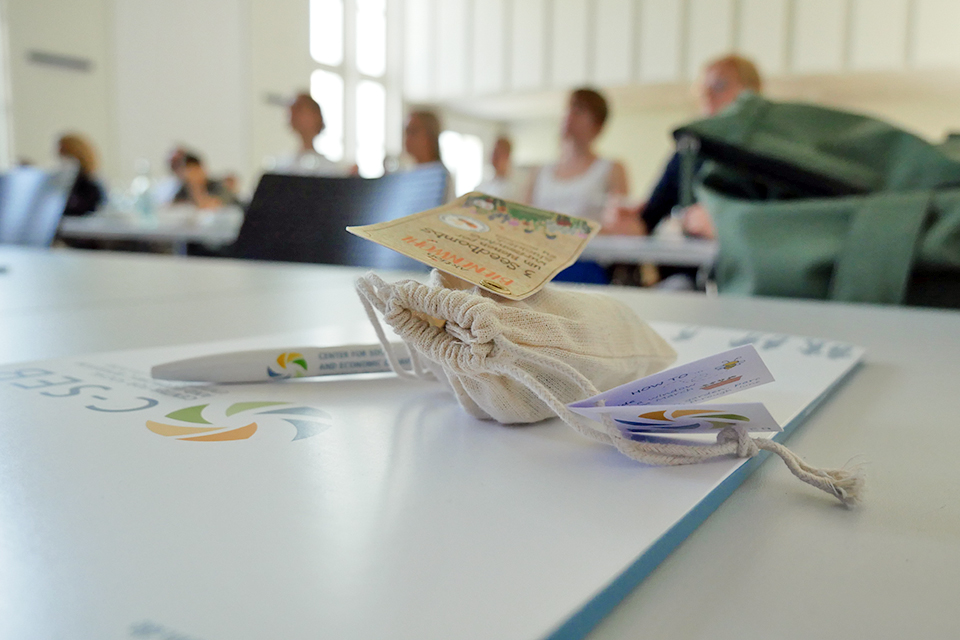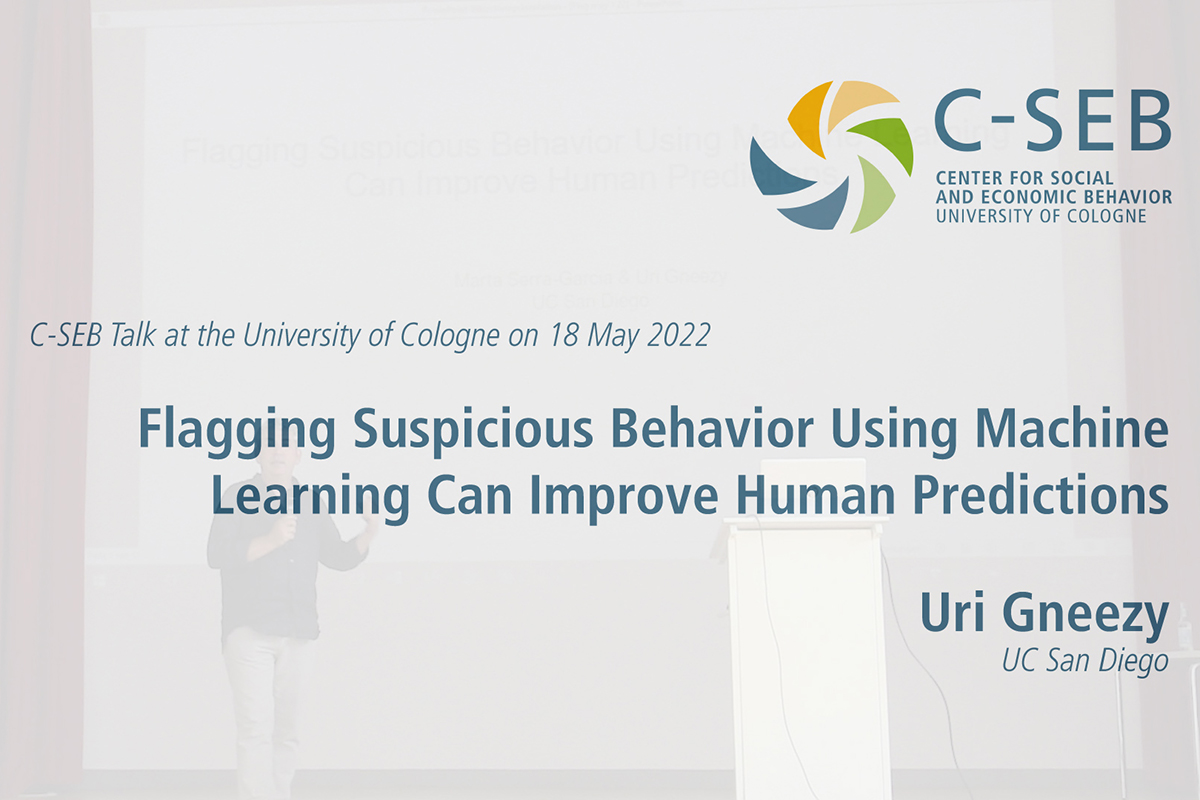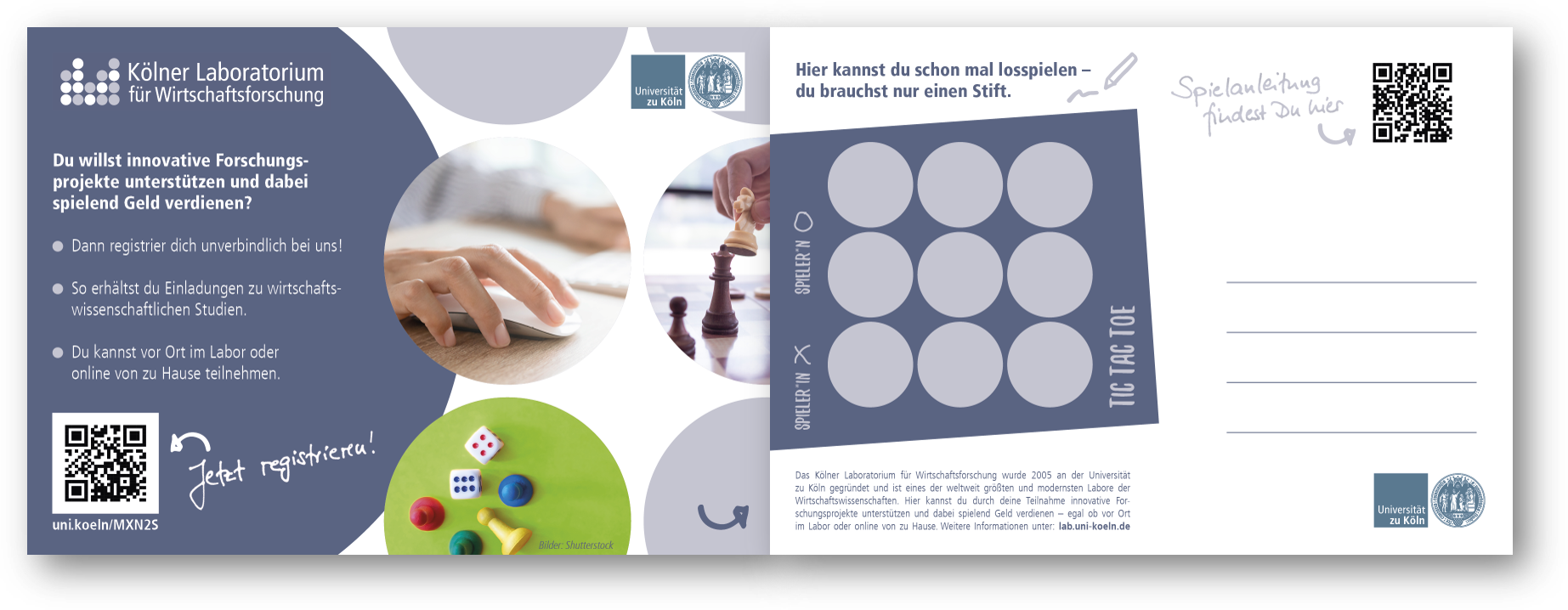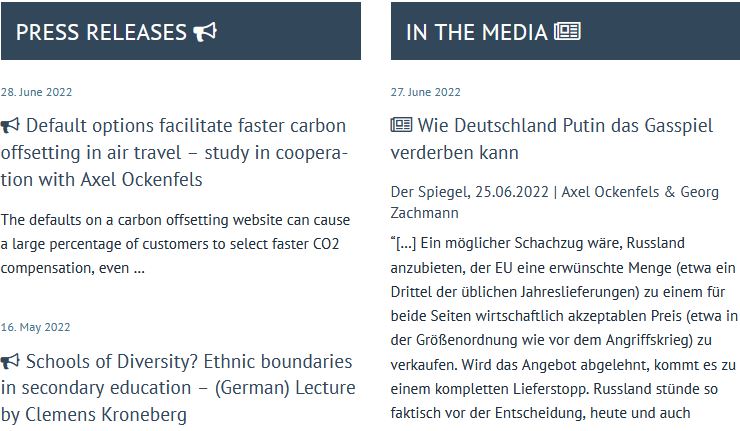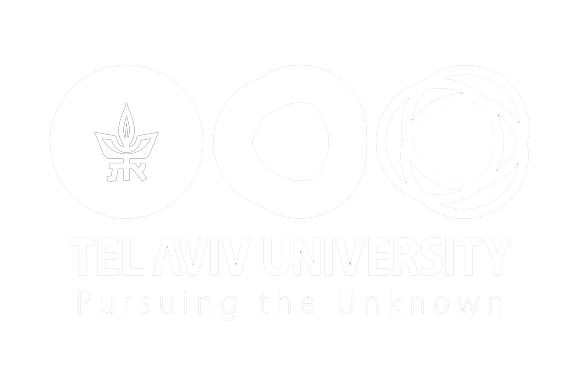07/2022
C-SEB Newsletter
Find out, what’s new at the Center for Social and Economic Behavior (C-SEB) – where researchers from economics, management science, and psychology investigate the principles and mechanisms of social and economic behavior.
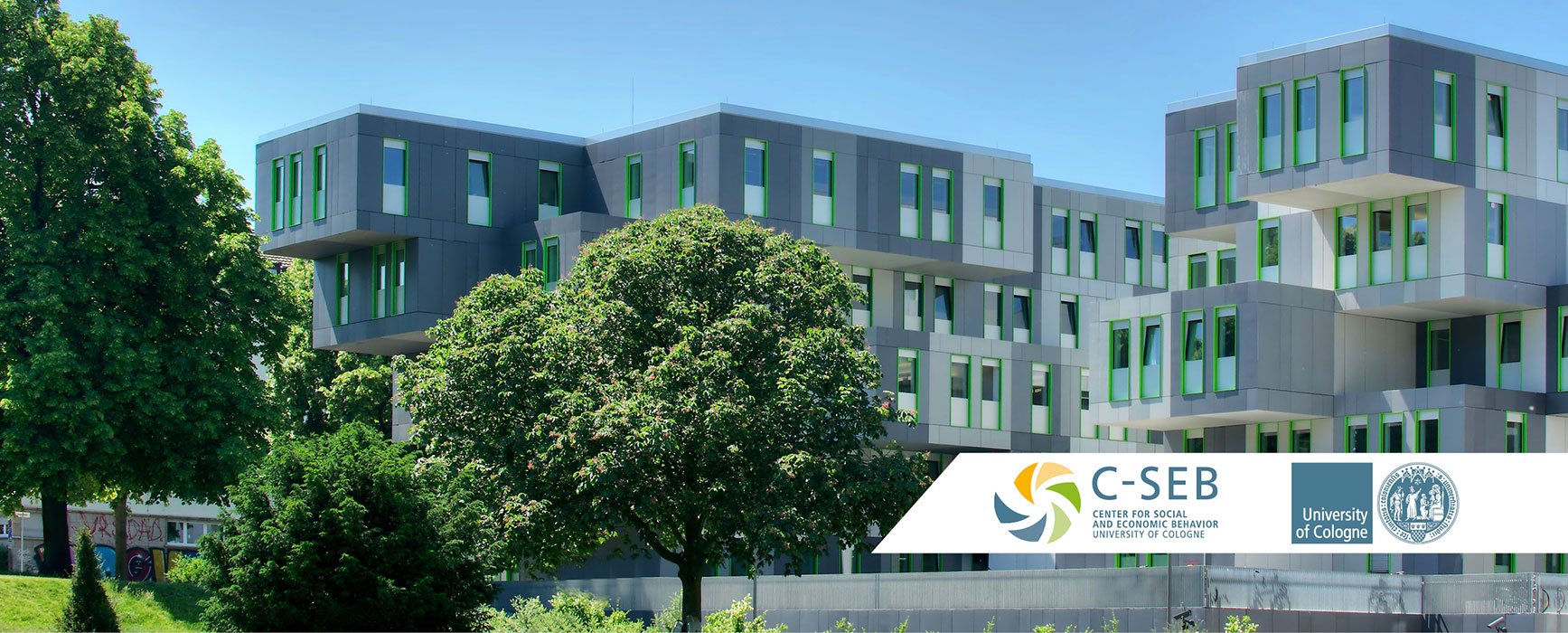
Grants & Awards

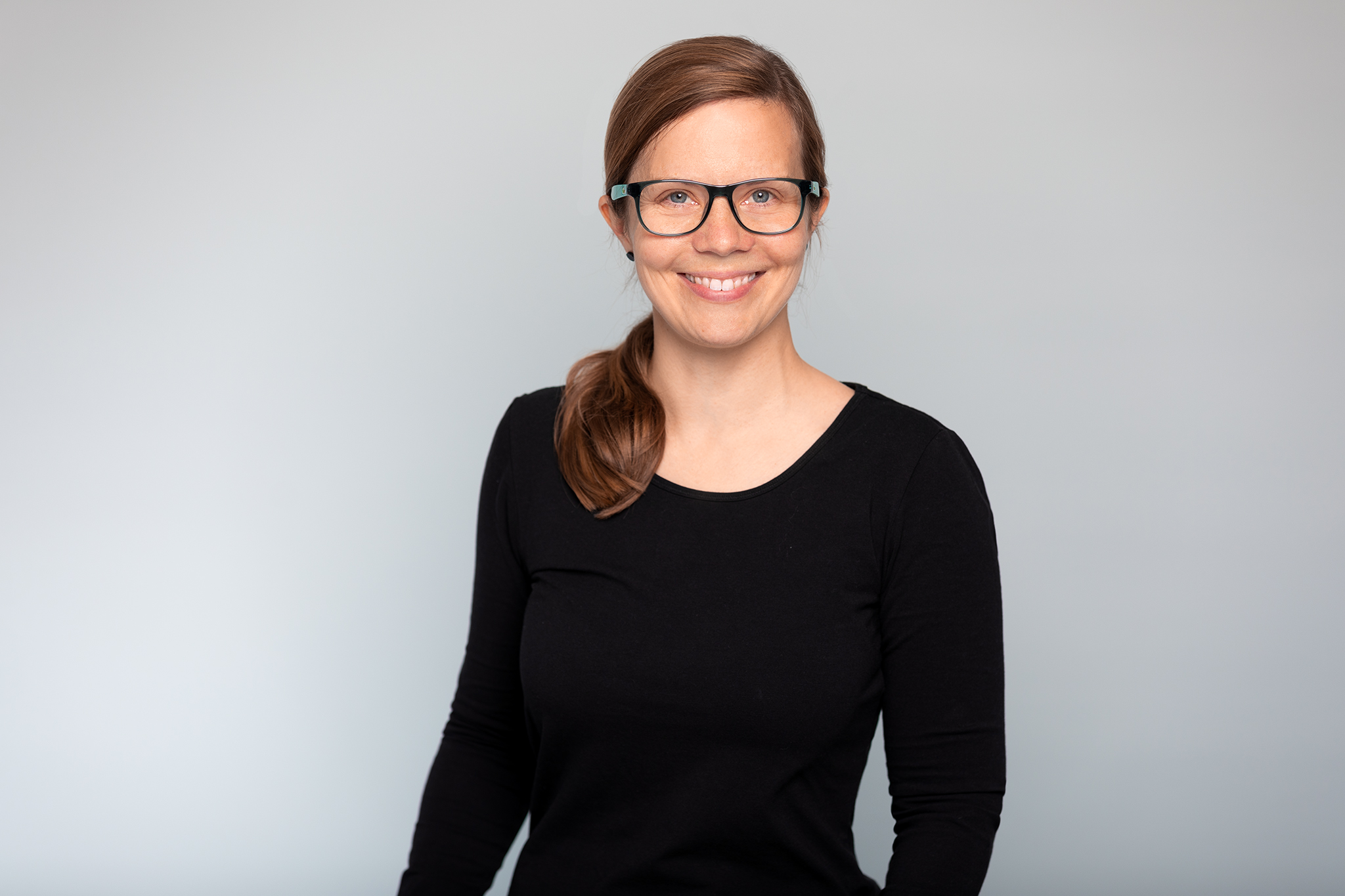 Angela Dorrough from the Social Cognition Center Cologne has won the Leo Spitzer Prize for Junior Researchers. Angela Dorrough conducts research on the influences of stereotypes, gender, and culture on behavior and on decision-making in social dilemmas.
Angela Dorrough from the Social Cognition Center Cologne has won the Leo Spitzer Prize for Junior Researchers. Angela Dorrough conducts research on the influences of stereotypes, gender, and culture on behavior and on decision-making in social dilemmas.
The Leo Spitzer Prize for Junior Researchers is awarded to outstanding young researchers in the arts, humanities, and human sciences in memory of the renowned Austrian-Jewish Romanist and literary theorist Leo Spitzer. The prize is endowed with € 30,000 over a period of two years to promote top-level research.
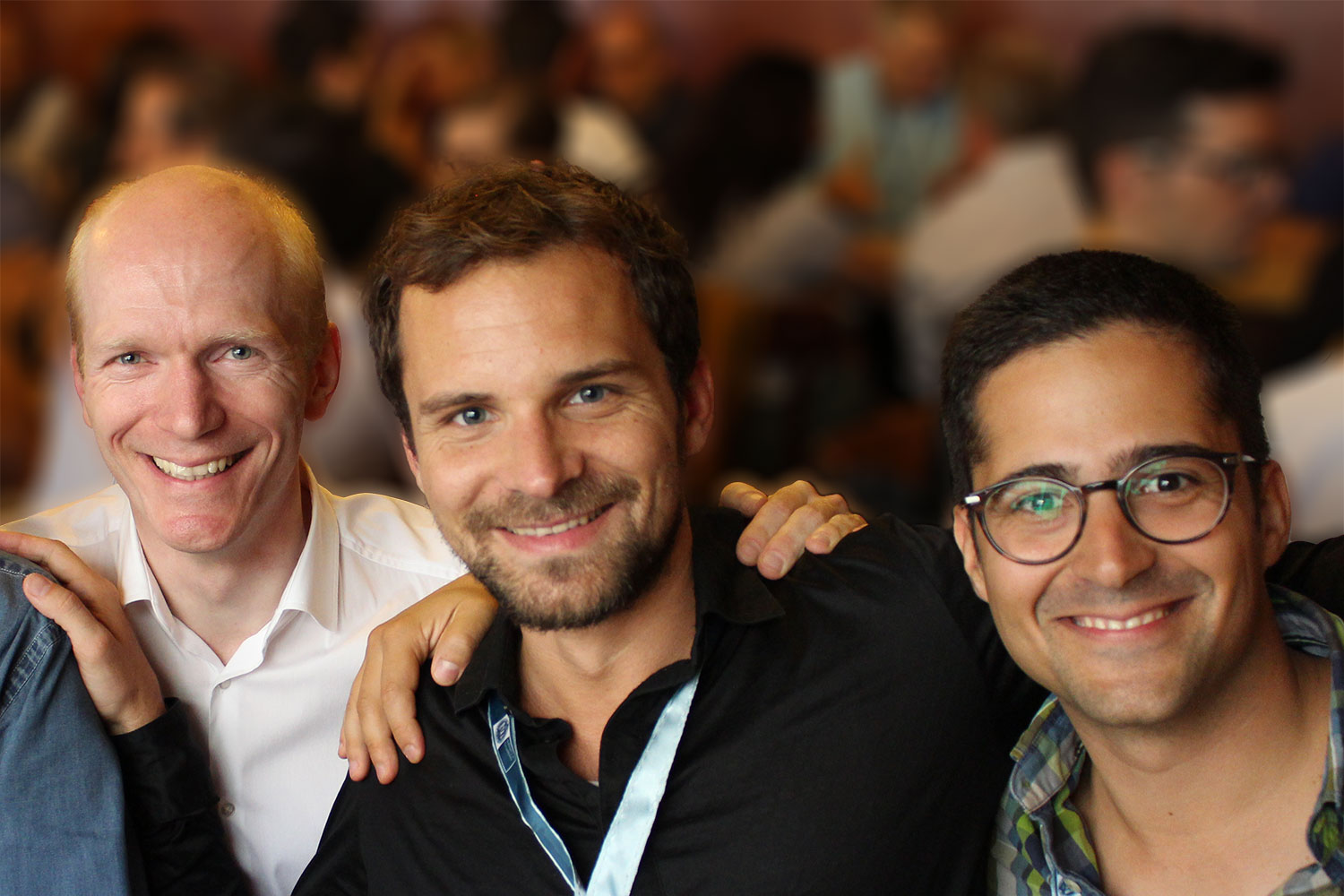 C-SEB Vice Speaker Christian Unkelbach, Hans Alves, and Alex Koch received the renowned Best Social Cognition Paper Award 2020 of the International Social Cognition Network for their paper Negativity Bias, Positivity Bias, and Valence Asymmetries.
C-SEB Vice Speaker Christian Unkelbach, Hans Alves, and Alex Koch received the renowned Best Social Cognition Paper Award 2020 of the International Social Cognition Network for their paper Negativity Bias, Positivity Bias, and Valence Asymmetries.
The authors provide a new theoretical explanation for the negativity bias, in which bad things are perceived as stronger than good things. The selection committee acknowledges this outstanding article, whose contribution goes far beyond the usual.
C-SEB STUDENT AWARDS
To encourage the pursuit of an academic career, C-SEB honors excellent master students for their overall academic achievements. Competition for the C-SEB Student Awards is tied to a master thesis in economic and/or psychological research. Congratulations to our award winners in the 14th funding round!
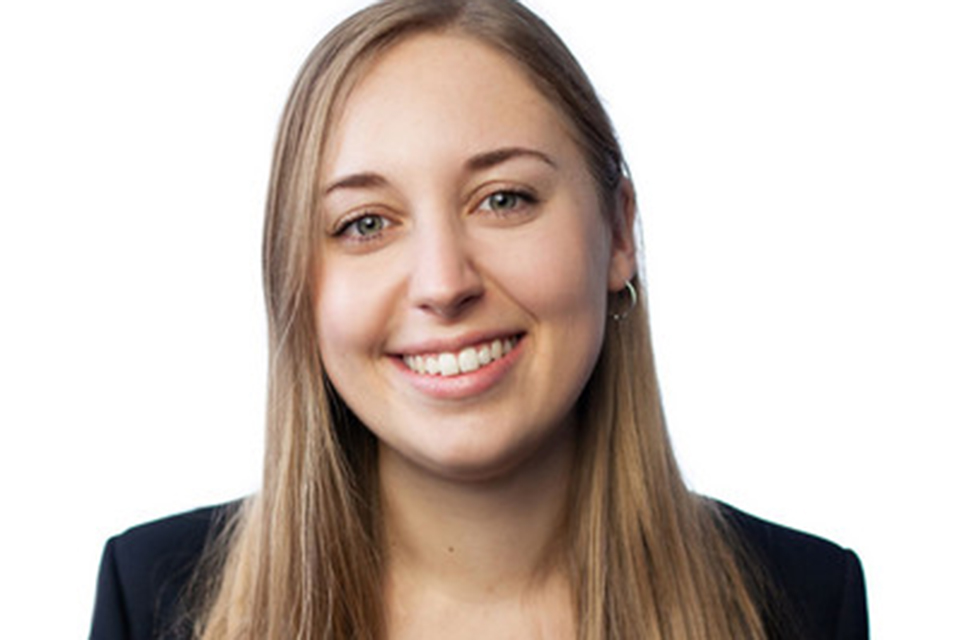 Vanessa Clemens
Vanessa Clemens
Faculty of Human Sciences
Master thesis: “Cumulative Prospect Theory and Psychological Distance: Self-Other Differences in Decision-Making Involving Risk”
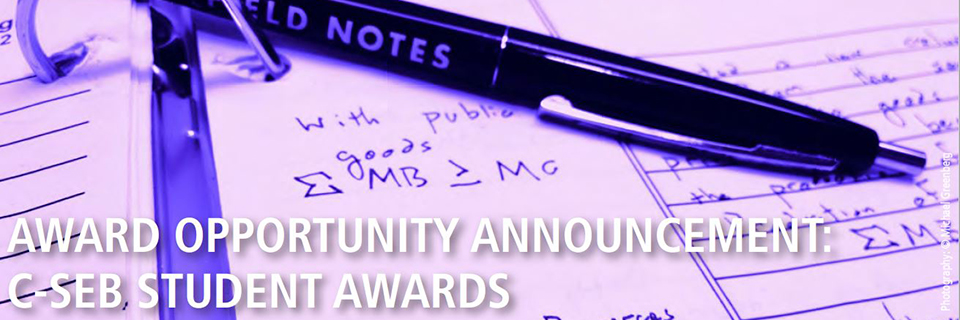 We are delighted that both have decided to pursue academic careers and to start them at the University of Cologne.
We are delighted that both have decided to pursue academic careers and to start them at the University of Cologne.
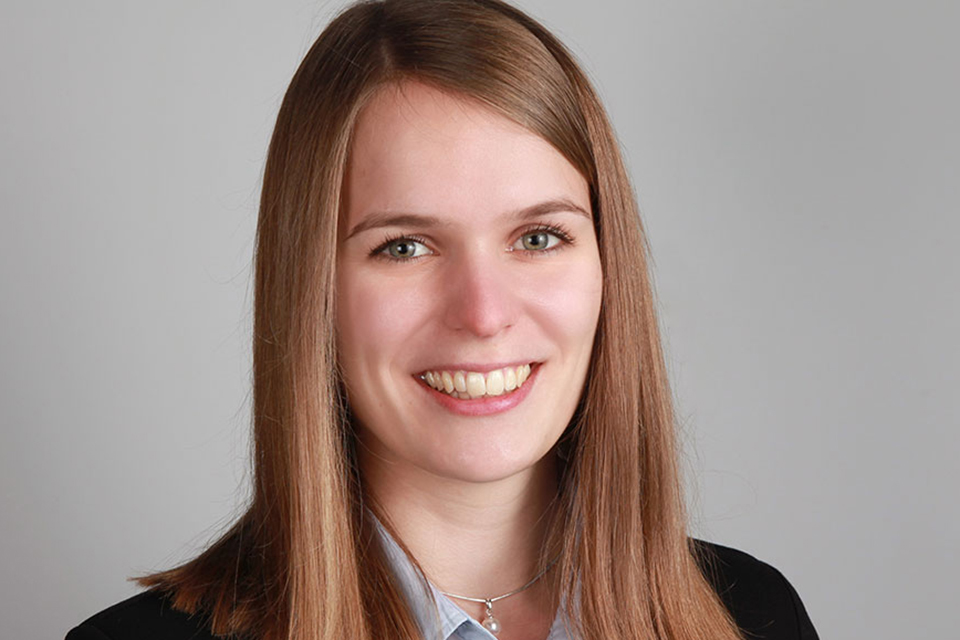 Paula Thevißen
Paula Thevißen
WiSo Faculty
Master thesis: “Gender Differences in Preferences for Leadership: Change Through Experience?”
Events
C-SEB WORKSHOP
It actually happened! The C-SEB Workshop took place on May 18th, 2022 at IN VIA and in person. Oliver Gürtler and Iris Schneider again put together a great program! – We need a successor for this job though, as Iris Schneider is moving to the TU Dresden as Professor of Social Psychology.
Thank you, Iris, for all your contributions to C-SEB and we wish you all the best!
C-SEB TALK
A highlight of the C-SEB Workshop was the C-SEB Talk by Uri Gneezy from UC San Diego “Flagging Suspicious Behavior Using Machine Learning Can Improve Human Predictions.” – If you missed the talk, you can watch the recording on YouTube.
Find more C-SEB Talks here.
Stories
These two C-SEB members traveled to the US and Spain respectively – and came back to tell us about their experiences.
Alexandra Gödderz on her research visit with Jimmy Calanchini at the University of California Riverside:
“As a mother and a PhD candidate I think a lot about the compatibility of having a family and a career. C-SEB’s Equal Opportunity Measures made it possible to realize a 2-month research stay at the University of California Riverside anyway – not least because the financial support allowed me to bring my 1-year old child and a caregiver (my husband). The setup allowed me to realize a very inspiring and intensive research stay. I benefited from participating in various activities, such as brownbag meetings, and from being part of a larger research group. Together with Jimmy Calanchini, I started a highly successful project on regional gender stereotypes and their relationship with the representation of women in the workforce and parental leave policies. We already presented the results at a conference in Barcelona and are accepted to submit this research to a special issue. These important steps in my career made the stay a great success!”
Max Grossmann on his participation in the 1st BESLab Computational and Experimental Economics Summer School:
“In this intensive summer school at the Universitat Pompeu Fabra, Barcelona, outstanding early-career scientists from various economics-related backgrounds met to learn about computational and experimental methods and their intersection. Over the course of one week, we were taught by world-renowned researchers on how to use computational methods to find equilibria without heroic assumptions. In our group project, we simulated an educational game on a common-pool resource with a prior public goods game that has a cooperative Nash equilibrium that is difficult to reach. We also learned how to use agent-based modelling to design new experiments. This summer school enabled awesome interactions with other motivated scholars, both among the students and faculty. It was really cool! Thanks, C-SEB, for funding this opportunity.”
C-SEB offers funding for outgoing researchers (Visitor Program, Female Travel Grants) and incoming/visiting researchers (International Fellowship Program). All C-SEB members are eligible to apply. Beyond the funding programs, C-SEB members can also submit applications for support of special endeavors at any time ‐ for example, for projects that do not fit into any of the funding lines or time‐critical projects that cannot wait until the next funding round.
Members activities
INTERCULTURAL INTERNSHIPS
Angela Dorrough and Iris Schneider have launched an internship program in which (German) students from the University of Cologne team up with international external interns and collaborate on research on intercultural social and economic behavior.
Cross-cultural and cross-national cooperation plays an increasingly important role in economics and politics. Students not only research how people work together across cultures and nations and the underlying cognitive processes, but also experience collaboration across cultures and nationalities first-hand, enriching their academic experience. Along the way, the program establishes contacts with universities in other countries to create exchange opportunities for internships and strengthen the international ties of the University of Cologne and C-SEB.
Interested students are invited to contact Angela Dorrough.
“Being a part of cross-national social behavior study as a foreign intern was a great experience for me in terms of learning a new culture in its own place. Also, during the internship period, I have learned how to design research and use survey software such as Unipark. Furthermore, working with people from other countries was sometimes challenging because of the language barrier, yet we managed the process by learning each other’s native tongues and the internship was one of the best experiences in my academic life.” — Esmanur Gülsoy from Istanbul Zaim University
WANTED: PARTICIPANTS!
The Cologne Laboratory for Economic Research (CLER) is an indispensable infrastructure for our members. The CLER has just launched a PR campaign to attract more participants to its database. You can currently find these postcards on campus – and they may come with a mini-pack of Haribo’s Goldbären.
Of course, new participants are always welcome in the psychology labs as well – check out the Decision Lab Cologne (dlc) and SoCCCo-Studien.
DEPENDENCY ON RUSSIA’S OIL AND GAS
The cover story of the current issue of the “Kölner Universitätsmagazin” – with contributions by Axel Ockenfels – deals with Europe’s dependency on Russia’s gas and oil and possible solutions. You can find further press coverage on this topic (and others) in the C-SEB News section.
POPULAR SCIENCE BOOK
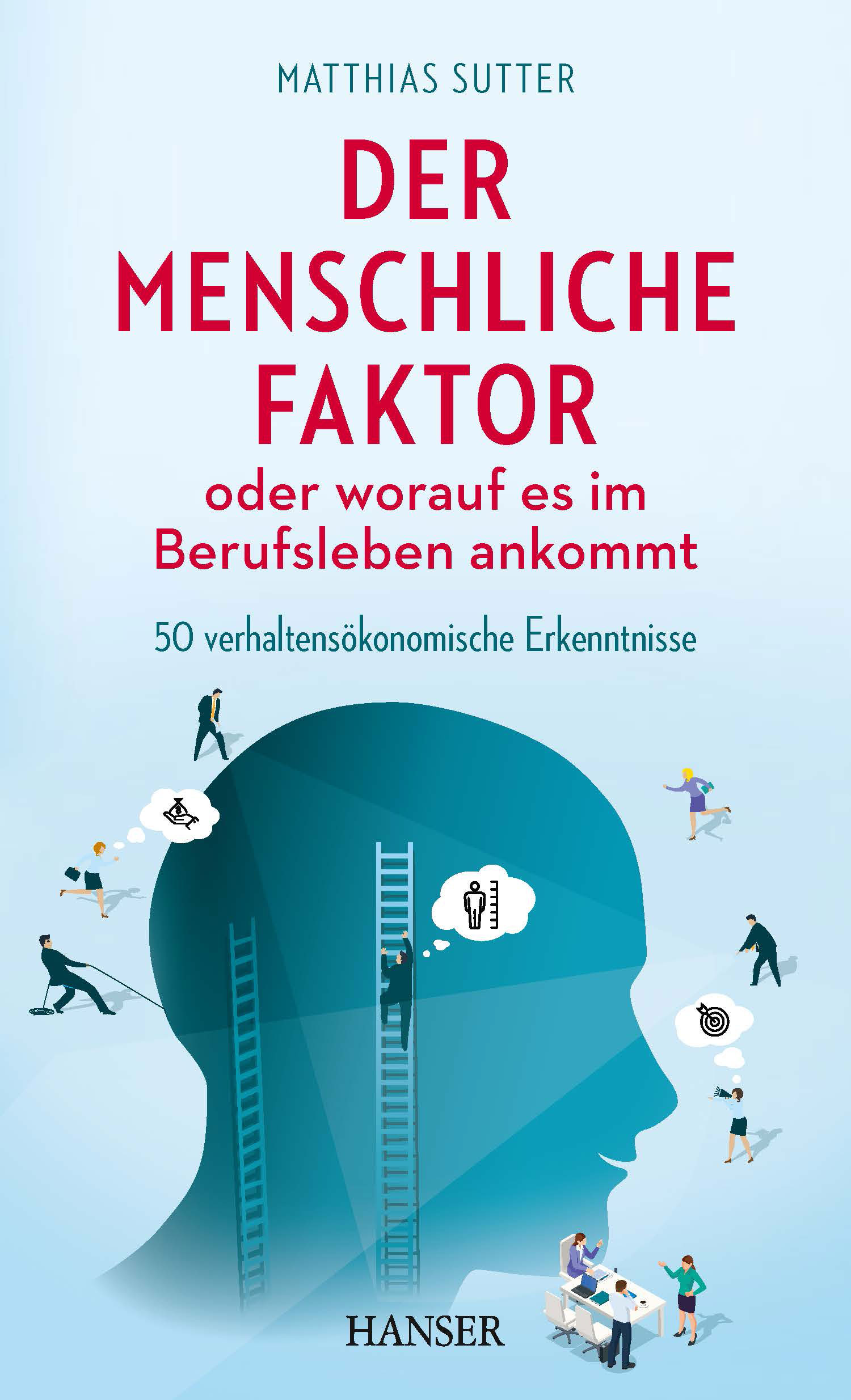 Matthias Sutter‘s book Der menschliche Faktor [The Human Factor] presents 50 behavioral economics insights into what matters in professional life – from starting a career to becoming a CEO.
Matthias Sutter‘s book Der menschliche Faktor [The Human Factor] presents 50 behavioral economics insights into what matters in professional life – from starting a career to becoming a CEO.
“Behavioral economics has brought to light a wealth of insights over the past two decades as to what makes people ‘tick.’ I would like to share these insights with readers and hope that they find them as exciting as I do, sometimes surprising, but in any case, thought-provoking!” — Matthias Sutter
Selected Publications
Andre, P., Pizzinelli, C., Roth, C., & Wohlfart, J. (in press).
Subjective Models of the Macroeconomy: Evidence From Experts and Representative Samples. The Review of Economic Studies.Chowdhury, S., Sutter, M., & Zimmermann, K. F. (in press)
Economic Preferences Across Generations and Family Clusters: A Large-Scale Experiment in a Developing Country. Journal of Political Economy.Dorrough, A. R., Leszczyńska, M., Werner, S., Schaeffer, L., Galley, A.-S., Akin, E., Bachmann, J., Bruske, M., Burghardt, U., & Simandi, F. (2022)
Equal Performance, Different Grade: Women’s Performance in Discussion Perceived Worse Than Men’s. Personality and Social Psychology Bulletin, 48(2), 222–238.Friebel, G., Heinz, M., Hoffman, M., & Zubanov, N. (in press)
What Do Employee Referral Programs Do? Measuring the Direct and Overall Effects of a Management Practice. Journal of Political Economy.Schäfer, S. J., Simsek, M., Jaspers, E., Kros, M., Hewstone, M., Schmid, K., Fell, B. F., Dorrough, A. R., Glöckner, A., & Christ, O. (2022)
Dynamic Contact Effects: Individuals’ Positive and Negative Contact History Influences Intergroup Contact Effects in a Behavioral Game. Journal of Personality and Social Psychology, 123(1), 107–122.Speckmann, F., & Unkelbach, C. (2022)
Monetary Incentives Do Not Reduce the Repetition-Induced Truth Effect. Psychonomic Bulletin & Review, 29(3), 1045–1052.Contact
We are happy to answer all questions you may have regarding C-SEB:
C-SEB Central Office
Phone: +49 (0)221 470-1146
c-seb@uni-koeln.de



